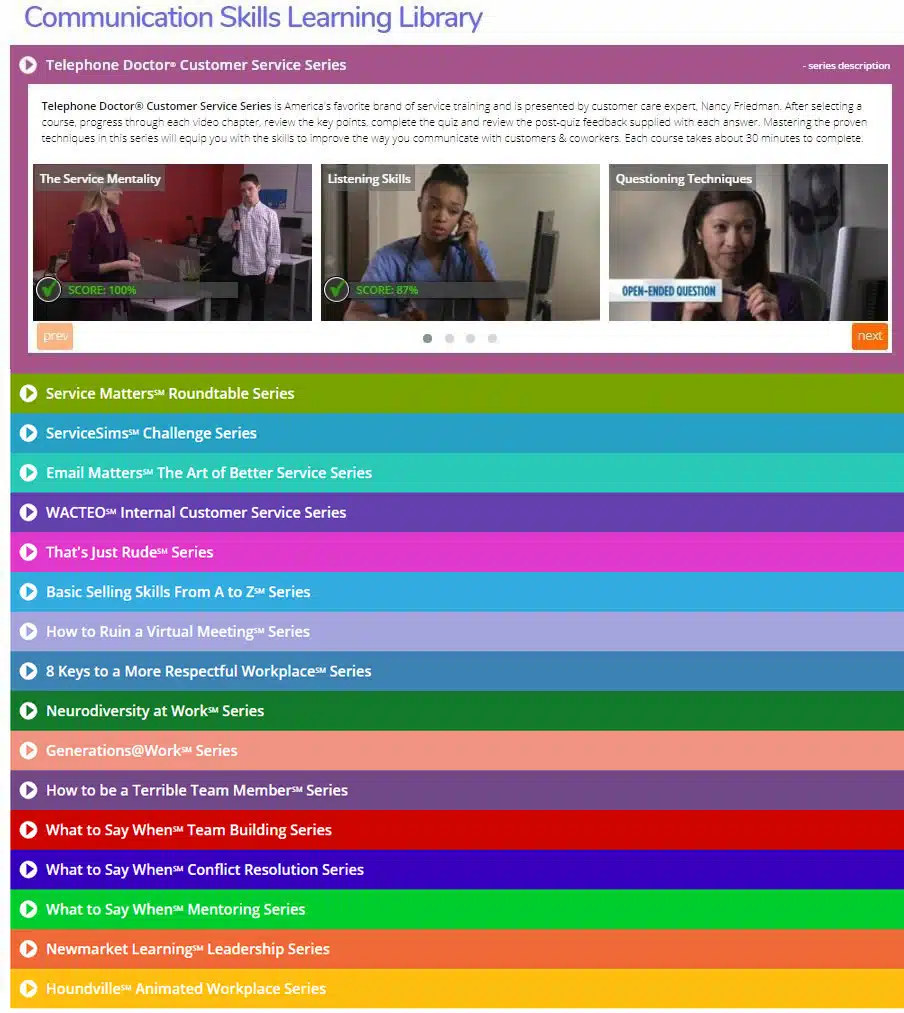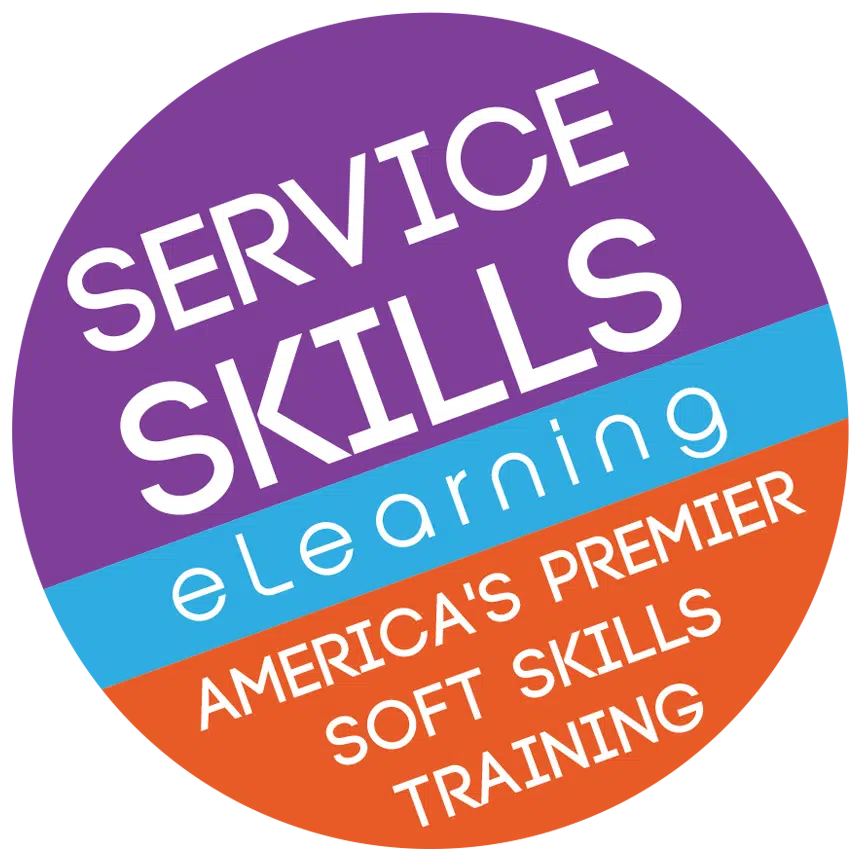Teach your team to save company time by addressing problems before they arise.
It seems that the default for many customer service reps is to respond to customer complaints after they happen. This works, yes. But with a simple shift in focus, you could increase customer retention and reduce incoming complaints. How?
Anticipating potential customer complaints and addressing them before they happen.

ServiceSkills.com’s library of customer service courses will teach your customer service representatives how to create loyal customers through proactive customer service.
Our scenario-based training modules allow your employees to see for themselves the effect of paying closer attention to customers, preventing future customer complaints rather than fixing past problems. And, since all our videos are online your team can watch them as they have time so training doesn’t affect productivity.
By training your employees about the importance of proactive customer care, your team will be able to spend less time dealing with angry customers and more time nurturing happy customers that will become lifelong brand advocates.
The all-in-one proactive customer service solution for companies that want results
Our informational, proven customer service courses will give your employees the tools they need to deliver exceptional customer service.
Customer service shouldn’t be reactionary—it should be anticipatory. Know your customers so well that you address needs as they come up.
It’s simple. Listen to what your customers are saying, provide them what they want before they ask for it, and they’ll be more likely to buy from your company in the future.
Our videos will cover so many real-to-life situations that your employees will be equipped to handle any customer service setting. Your team will learn how to anticipate customer needs and deliver results, breeding loyal customers.
Customer service skills are the key to growing your bottom line. Give your organization the tools they need to succeed. Learn how to harness the power of emotional intelligence, flexibility and persuasion by reading our guide to effective communication.











